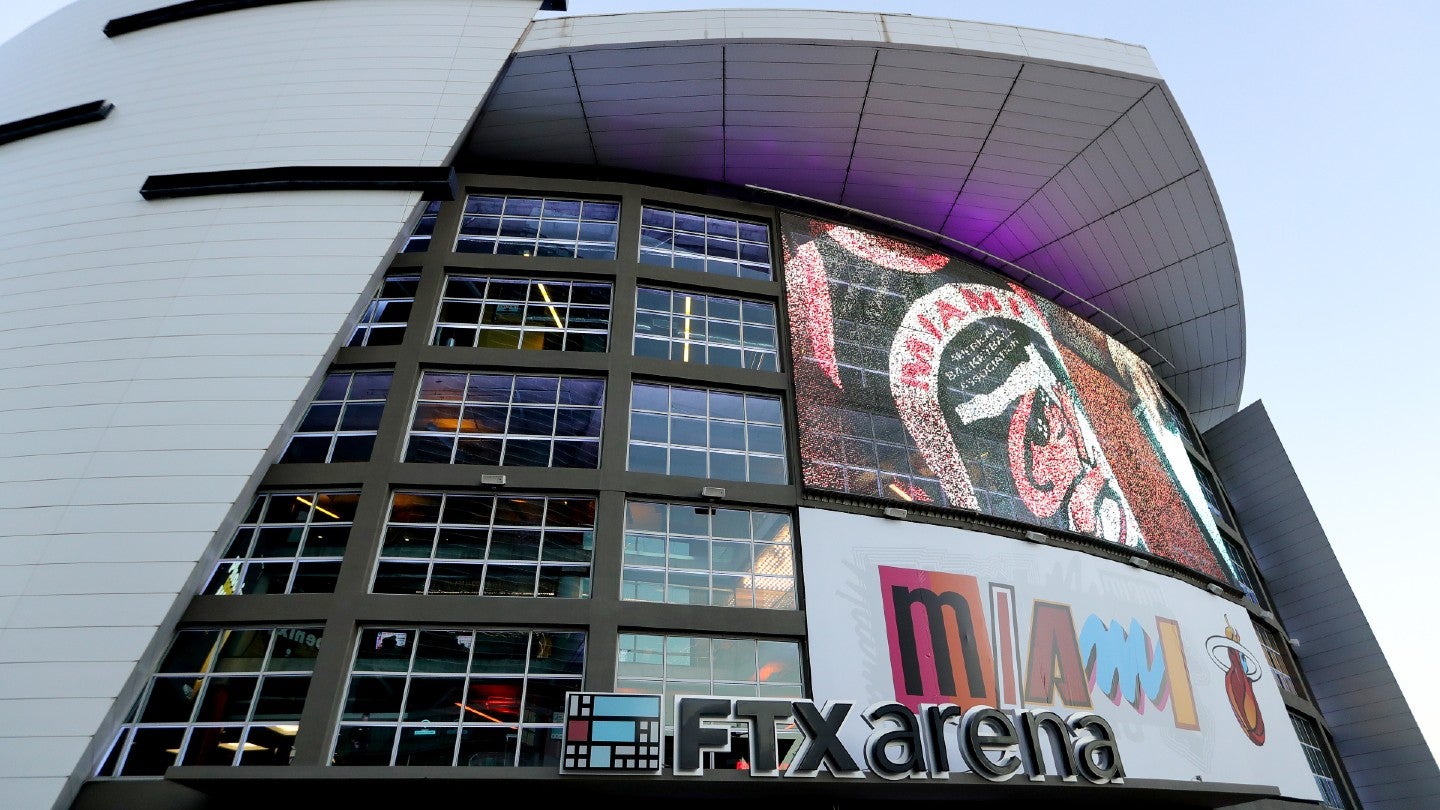
Florida’s Miami-Dade County, the owner of the Miami Heat’s home basketball arena known commercially as FTX Arena, has been granted permission to immediately end its naming rights deal with FTX and strip the logo of the beleaguered cryptocurrency exchange from the venue.
The permission was granted by a federal bankruptcy court in Delaware where the FTX bankruptcy proceedings are taking place, two months after the county filed its request.
At the time, the county argued that continuing the agreement with the failed company would cause “significant hardship” for the county and hamper its efforts to find a new title sponsor for the arena.
The approval of the request will see all FTX branding removed from the arena’s roof, basketball court, and entrances, as well as from shirts worn by stadium employees.
The move also officially ends FTX's 19-year, $135-million deal for naming rights to the arena struck in 2021. After an initial balloon payment of $14 million, FTX was scheduled to make a $5.5 million payment at the beginning of this month.
The deal saw FTX replace long-term sponsor American Airlines, which held the arena’s title sponsorship rights since its launch in 1999.

US Tariffs are shifting - will you react or anticipate?
Don’t let policy changes catch you off guard. Stay proactive with real-time data and expert analysis.
By GlobalDataAlso under the deal, the Heat were to receive $2 million per year, with most of the rest – roughly $90 million over the lifetime of the agreement – to be paid to the county and used to fund a youth gun violence prevention program called the ‘Peace and Prosperity’ plan.
However, the relationship between the two parties effectively ended just 20 months after it was signed on November 11 – the same day FTX filed for bankruptcy.
This latest decision comes a week after lawyers for FTX filed a motion with the court to cancel its more than 23 marketing agreements. As well as the Heat deal, FTX has asked for its partnerships with the NBA's Golden State Warriors and Major League Baseball to be terminated.
FTX was the third-largest cryptocurrency exchange but filed for Chapter 11 bankruptcy protection after a crypto price crash left the company unable to cover accounts as customers rushed to withdraw funds due to concerns being reported about its financial health. The exchange reportedly saw $6 billion of withdrawals in the 72 hours up to November 8.
Last month, its founder Sam Bankman-Fried was arrested in the Bahamas and extradited to the US to face criminal charges related to fraud. He has been released on bail and is scheduled to go on trial in October.
The FTX collapse caused a ripple effect in the sports world due to its numerous sponsorship deals. In 2021, it signed a $10-million deal with the NBA’s Golden State Warriors and a multi-year marketing deal with Monumental Sports and Entertainment, parent company of the Washington Wizards (NBA), Washington Capitals (NHL), and Washington Mystics (WNBA).
It had additional agreements with Major League Baseball, whose umpires wear the company’s logo, the Mercedes Formula 1 team, and the International Cricket Council, as well as esports' Team SoloMid, League of Legends' Championship Series, and Furia.
Several high-profile athlete partners of FTX including the NFL’s Tom Brady, NBA’s Stephen Curry, tennis star Naomi Osaka, and Miami Heat forward Udonis Haslem have been named as defendants in a class-action lawsuit against FTX, which argues their celebrity status made them culpable from promoting the firm’s failed business model.
The Golden State Warriors have also been named In a separate lawsuit filed at San Francisco federal court by Hong Kong resident Elliot Lam who claims the NBA team falsely represented that FTX was a “viable and safe way to invest in crypto” and thus engaged in “fraudulent and deceitful conduct.”
Image: Megan Briggs/Getty Images



